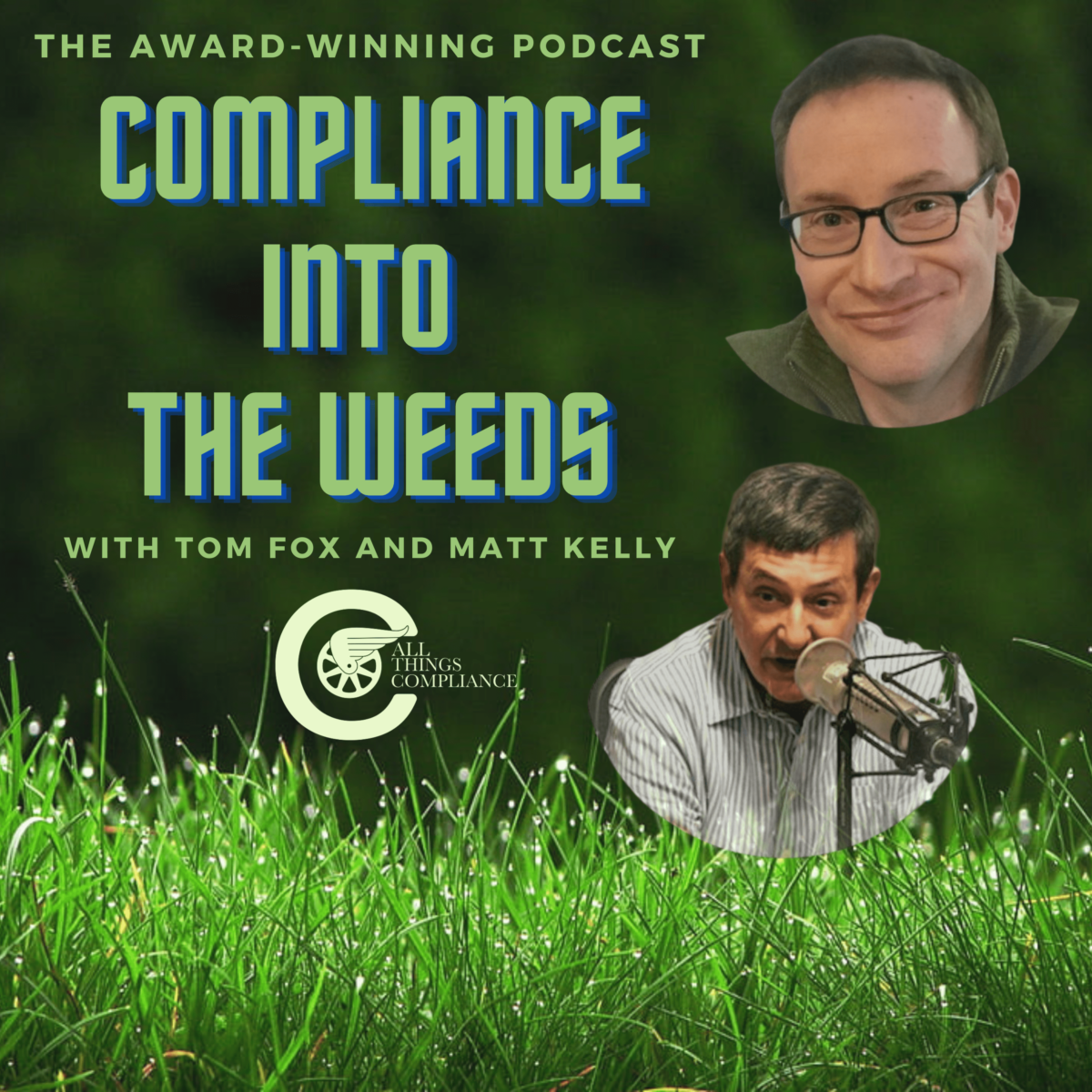The award-winning, Compliance into the Weeds is the only weekly podcast that takes a deep dive into a compliance-related topic, going into the weeds to explore a subject more fully and looking for some hard-hitting insights on sanctions compliance. Look no further than Compliance into the Weeds!
Get ready to dive into the fraud risk management and prevention world with Compliance into the Weeds, hosted by Tom Fox and Matt Kelly. In this episode, they break down the recently released fraud risk framework by COSO and the Association of Certified Fraud Examiners and how it’s necessary for today’s cyber-based fraud and cryptocurrency. They stress the importance of data analytics and internal hotlines to prevent fraud and that all employees need to be trained to detect and prevent fraud in their industry. The hosts also discuss how financial reporting controls may not always detect fraud and how anti-fraud controls are essential. With the rise of new types of fraud like ESG and greenwashing, the hosts recommend the fraud risk report for audit and compliance professionals to stay informed about risks swirling around corporations today. Take advantage of this informative and fascinating podcast. Tune in to Compliance into the Weeds now.
Key Highlights:
· Fraud Risk Management: COSO Report 2nd Edition
· Effective Fraud Prevention Training for Employees
· Importance of Anti-Fraud Controls in Fighting Fraud
· COSO Fraud Risk Guidance and the Fraud Pentagon
Notable Quotes:
“But when you think about it, we have a lot of external factors, such as the rise of cryptocurrency, which is riddled with fraud and corruption risk. New methods of cyber-based fraud, which didn’t exist, say, 2016, the 2010s before that. Rise of ransomware in particular, which wasn’t quite a big thing back then that it is all over the place now.”
“Most frauds, you the risk management function, you might never catch them. By looking for them, you’ll have to depend on somebody else coming to you from the enterprise, say, I think this person over here is doing something sketchy.”
“Fraud is having a moment. And fraud risk is on the forefront of many people’s minds from many different areas.”
“We need to do better at finding ways to assess and understand your fraud risk and then implementing new controls as necessary to push that risk down to acceptable levels.”
Resources
Matt
Blog Post in Radical Compliance
Tom



